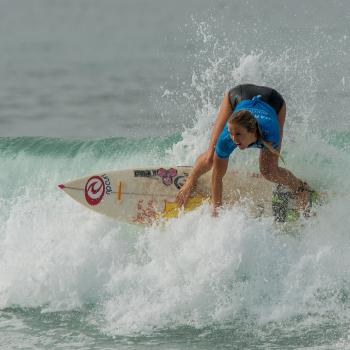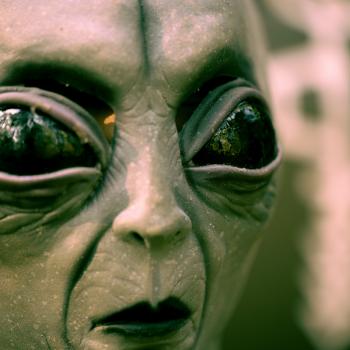Whenever we begin a conversation about restoration at an international level, we’re met with pessimism. Questions surface like: “How does someone like me living in Des Moines, Iowa, join God in the work of international peacemaking?” In questions like these we discover just how disconnected many of us are from how globalization, international conflict, and the immigration phenomenon have brought global communities into our own neighborhoods.
While it’s likely that most of us will never find ourselves in international peace negotiations, almost all of us are relationally connected to the divides in our world through our neighbors, our businesses, our churches, and even our social media channels. But how do we leverage those relationships? And in so doing, how do we join God in his work of restoration on a global scale?
Andy, Jamie, and their kids are your typical white evangelical family. They’re natives of Seattle, Washington, and local practitioners of international peacemaking. Refugees from Iraq and Syria inhabit their neighborhood, creating an opportunity for their family to become an instrument of peace in our war-torn world.
The reality of ISIS paired with the chaos of the Syrian conflict has created a refugee crisis the likes of which hasn’t been experienced since World War II. At the time we are writing this, 4.6 million Iraqis have been displaced due to ISIS campaigns. According to the Internal Displacement Monitoring Centre, 6.1 million Syrians have been internally displaced while an additional 4.8 million Syrians are on a perilous refugee journey toward safety.
The state of Washington is considered one of the top ten most receptive states to refugees in the country with the Seattle area leading the way. To date, more than fifteen thousand Iraqi refugees have been resettled in the greater Seattle area and between thirty and fifty thousand Syrians. Andy, Jamie, and their kids are at the center of an international peacemaking effort in their own neighborhood.
As it always does, it began with healed sight. Neither Andy nor Jamie had been to Iraq or Syria nor had they spent much time with Muslims. They simply saw in the local newspapers that a group of Middle Eastern refugees were moving to town and were in desperate need of support and accompaniment. Reality hit Andy and Jamie. Their new international neighbors needed help adjusting to life in a new country after unthinkable trauma in their own.
Their immersion began with a cultural competency training offered by a local refugee resettlement organization. Within days, an Iraqi family was living with them in their small apartment. Hospitality was the tool of their contending. While Andy and Jamie didn’t have much, they did have a spare bedroom, some extra folding chairs, and the resources to ensure that their dinner table had enough food for everyone. They also had a network of friends and family that pitched in additional resources to ensure that all who called their humble apartment “home” had what they needed.
Andy and Jamie worked hard to help their new roommates get acquainted with an American kitchen, local grocery stores, the school system, and public transportation. English lessons were organic as, around the shared table, they worked with their foreign friends to establish a baseline understanding of English. Over time, a trusting relationship developed that created the space for healing to occur for the Iraqi family. But theirs wasn’t the only restoration that occurred.
As I (Jer) have reflected with Andy on the experience of welcoming refugees, he’s been quick to declare that the restoration that’s occurring is his own. His understanding of who God is and who God is for is expanding. He’s been forced to acknowledge how he’s allowed his upbringing, theological development, and media influences to blind him from people who are not like him. As their home has become a place of immersion, he’s learned how God inhabits the spaces Andy formerly protected and how God brings about holistic restoration when we release our grip on “our” resources. He and his family are working hard to confront their constructions of “enemy” and are finding that as they practice creative love, God is restoring them, those they host, and those who are on the journey with them.
Since hosting that original family, Andy and his family have hosted eight additional Iraqi and Syrian families in their home. We have shared their story with faith, civic, and political leaders throughout the country as an example of how to engage in international peacemaking with our refugee neighbors. Andy, Jamie, and their kids are joining God in his work of international restoration from their living room and dinner table and, as a result, others are learning to do the same.
As we learn to see, immerse, and contend, we actively join God in bringing restoration to life in our interpersonal relationships, issues of local injustice, and international conflicts. Often, the restoration that springs to life in us and those around us surprises us. Restoration realized takes shape in hundreds of different ways.
The restored world that God is making—that we get to join him in ushering in—looks like a world were brothers no longer kill their brothers and where women and children are no longer exploited for the pleasure of men. This restored world is one in which no human beings are owned by other, more powerful human beings.
The restored world God is making is one in which senseless gun violence no longer produces dead kids in our streets and where immigrants and refugees no longer hide in fear in the shadows of overcrowded apartments. It’s a world where human beings are no longer trapped in cages, where addiction no longer has power, and where hunger and thirst no longer plague humanity. It’s world where children are no longer trapped in systems without families.
Restoration happens when capitalism no longer trumps compassion, where consumption no longer trumps generosity, and where my flourishing no longer trumps yours. It happens when you and I assume the posture of the cross in myriad ways for the benefit of others. Restoration springs to life when we leverage and lay down our power and privilege so that others flourish.
This restored world that we speak of is made possible because of the death and resurrection of Jesus. It’s the new world that God is making, and everyday peacemakers get to be a part of bringing it about.
—Adapted from chapter eight, “Restore”
While it’s likely that most of us will never find ourselves in international peace negotiations, almost all of us are relationally connected to the divides in our world through our neighbors, our businesses, our churches, and even our social media channels. But how do we leverage those relationships? And in so doing, how do we join God in his work of restoration on a global scale?
Andy, Jamie, and their kids are your typical white evangelical family. They’re natives of Seattle, Washington, and local practitioners of international peacemaking. Refugees from Iraq and Syria inhabit their neighborhood, creating an opportunity for their family to become an instrument of peace in our war-torn world.
The reality of ISIS paired with the chaos of the Syrian conflict has created a refugee crisis the likes of which hasn’t been experienced since World War II. At the time we are writing this, 4.6 million Iraqis have been displaced due to ISIS campaigns. According to the Internal Displacement Monitoring Centre, 6.1 million Syrians have been internally displaced while an additional 4.8 million Syrians are on a perilous refugee journey toward safety.
The state of Washington is considered one of the top ten most receptive states to refugees in the country with the Seattle area leading the way. To date, more than fifteen thousand Iraqi refugees have been resettled in the greater Seattle area and between thirty and fifty thousand Syrians. Andy, Jamie, and their kids are at the center of an international peacemaking effort in their own neighborhood.
As it always does, it began with healed sight. Neither Andy nor Jamie had been to Iraq or Syria nor had they spent much time with Muslims. They simply saw in the local newspapers that a group of Middle Eastern refugees were moving to town and were in desperate need of support and accompaniment. Reality hit Andy and Jamie. Their new international neighbors needed help adjusting to life in a new country after unthinkable trauma in their own.
Their immersion began with a cultural competency training offered by a local refugee resettlement organization. Within days, an Iraqi family was living with them in their small apartment. Hospitality was the tool of their contending. While Andy and Jamie didn’t have much, they did have a spare bedroom, some extra folding chairs, and the resources to ensure that their dinner table had enough food for everyone. They also had a network of friends and family that pitched in additional resources to ensure that all who called their humble apartment “home” had what they needed.
Andy and Jamie worked hard to help their new roommates get acquainted with an American kitchen, local grocery stores, the school system, and public transportation. English lessons were organic as, around the shared table, they worked with their foreign friends to establish a baseline understanding of English. Over time, a trusting relationship developed that created the space for healing to occur for the Iraqi family. But theirs wasn’t the only restoration that occurred.
As I (Jer) have reflected with Andy on the experience of welcoming refugees, he’s been quick to declare that the restoration that’s occurring is his own. His understanding of who God is and who God is for is expanding. He’s been forced to acknowledge how he’s allowed his upbringing, theological development, and media influences to blind him from people who are not like him. As their home has become a place of immersion, he’s learned how God inhabits the spaces Andy formerly protected and how God brings about holistic restoration when we release our grip on “our” resources. He and his family are working hard to confront their constructions of “enemy” and are finding that as they practice creative love, God is restoring them, those they host, and those who are on the journey with them.
Since hosting that original family, Andy and his family have hosted eight additional Iraqi and Syrian families in their home. We have shared their story with faith, civic, and political leaders throughout the country as an example of how to engage in international peacemaking with our refugee neighbors. Andy, Jamie, and their kids are joining God in his work of international restoration from their living room and dinner table and, as a result, others are learning to do the same.
As we learn to see, immerse, and contend, we actively join God in bringing restoration to life in our interpersonal relationships, issues of local injustice, and international conflicts. Often, the restoration that springs to life in us and those around us surprises us. Restoration realized takes shape in hundreds of different ways.
The restored world that God is making—that we get to join him in ushering in—looks like a world were brothers no longer kill their brothers and where women and children are no longer exploited for the pleasure of men. This restored world is one in which no human beings are owned by other, more powerful human beings.
The restored world God is making is one in which senseless gun violence no longer produces dead kids in our streets and where immigrants and refugees no longer hide in fear in the shadows of overcrowded apartments. It’s a world where human beings are no longer trapped in cages, where addiction no longer has power, and where hunger and thirst no longer plague humanity. It’s world where children are no longer trapped in systems without families.
Restoration happens when capitalism no longer trumps compassion, where consumption no longer trumps generosity, and where my flourishing no longer trumps yours. It happens when you and I assume the posture of the cross in myriad ways for the benefit of others. Restoration springs to life when we leverage and lay down our power and privilege so that others flourish.
This restored world that we speak of is made possible because of the death and resurrection of Jesus. It’s the new world that God is making, and everyday peacemakers get to be a part of bringing it about.
—Adapted from chapter eight, “Restore”
6/11/2021 3:48:13 PM




